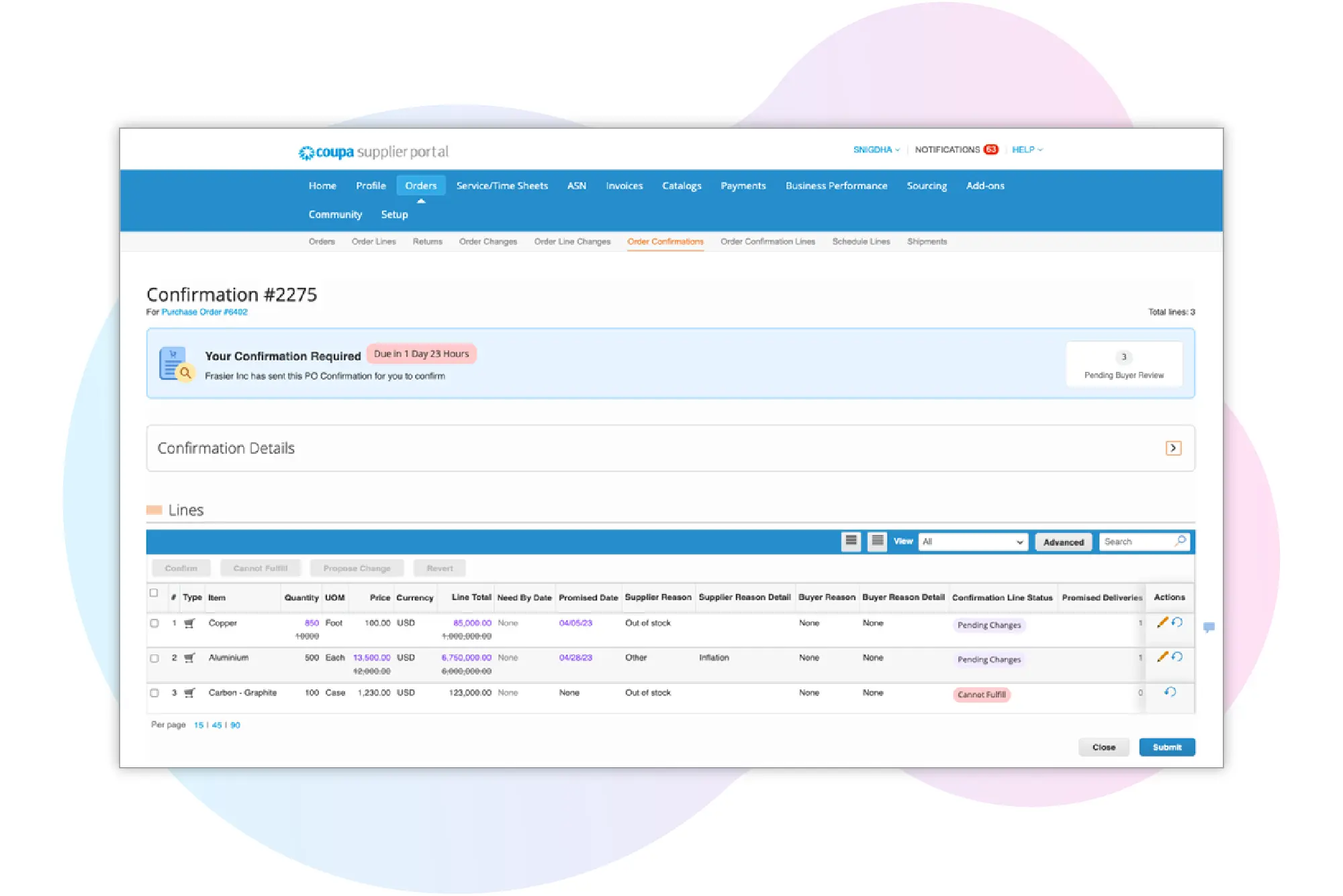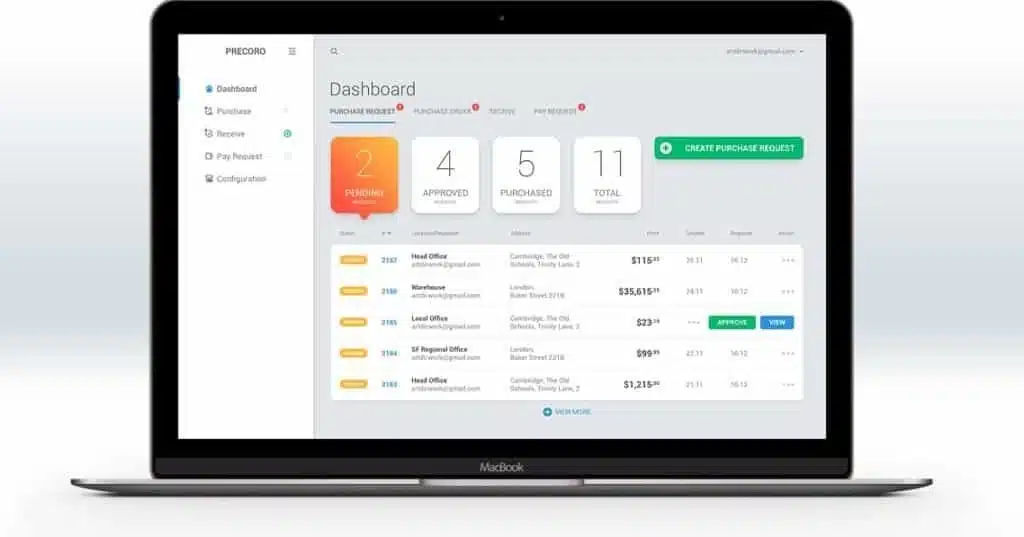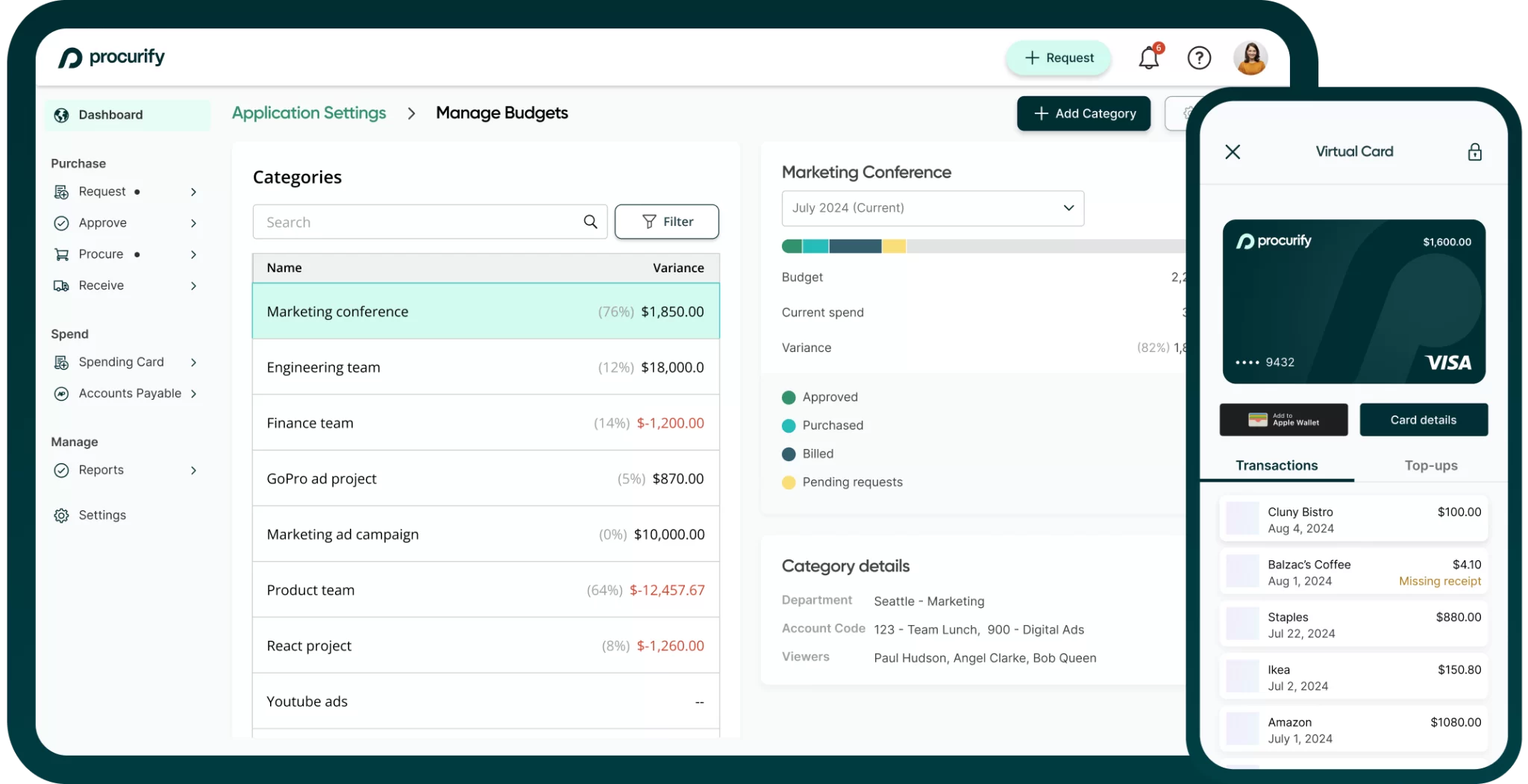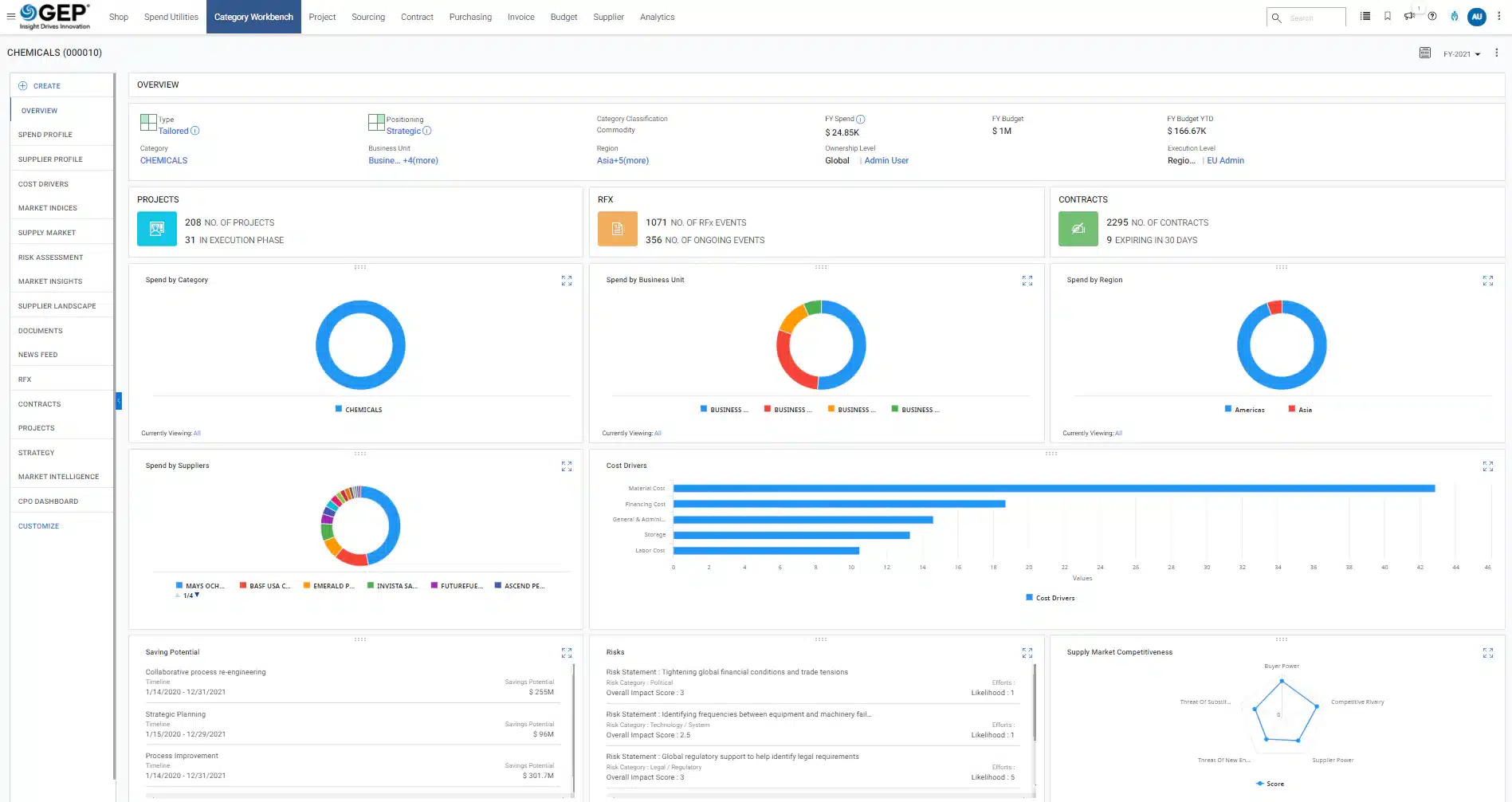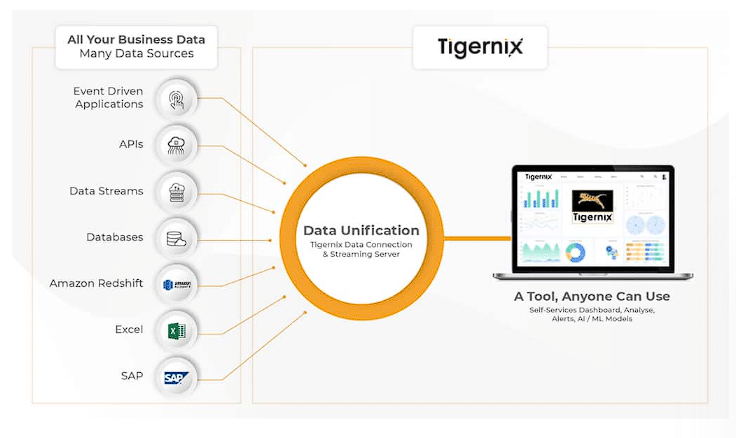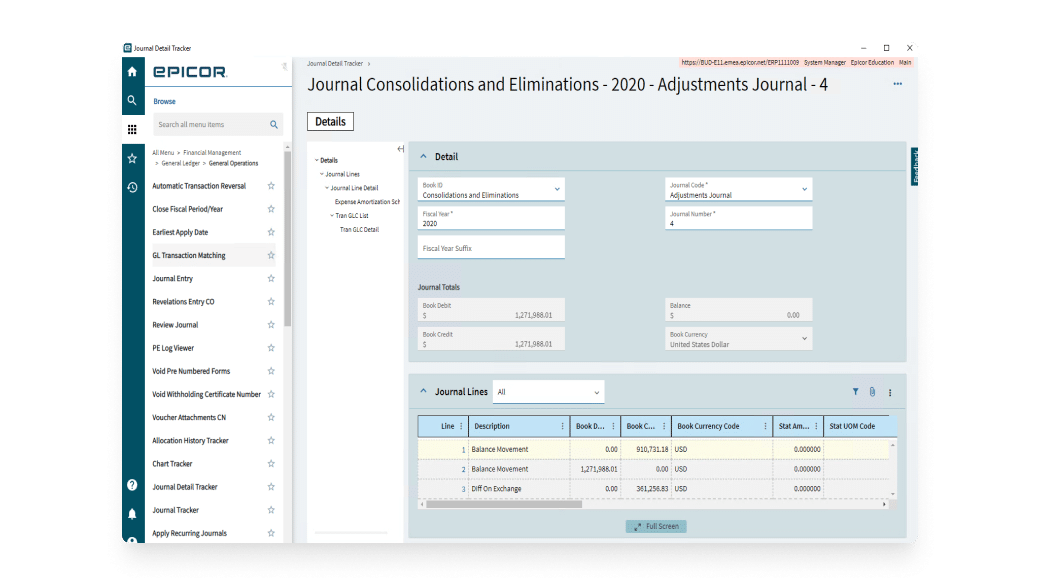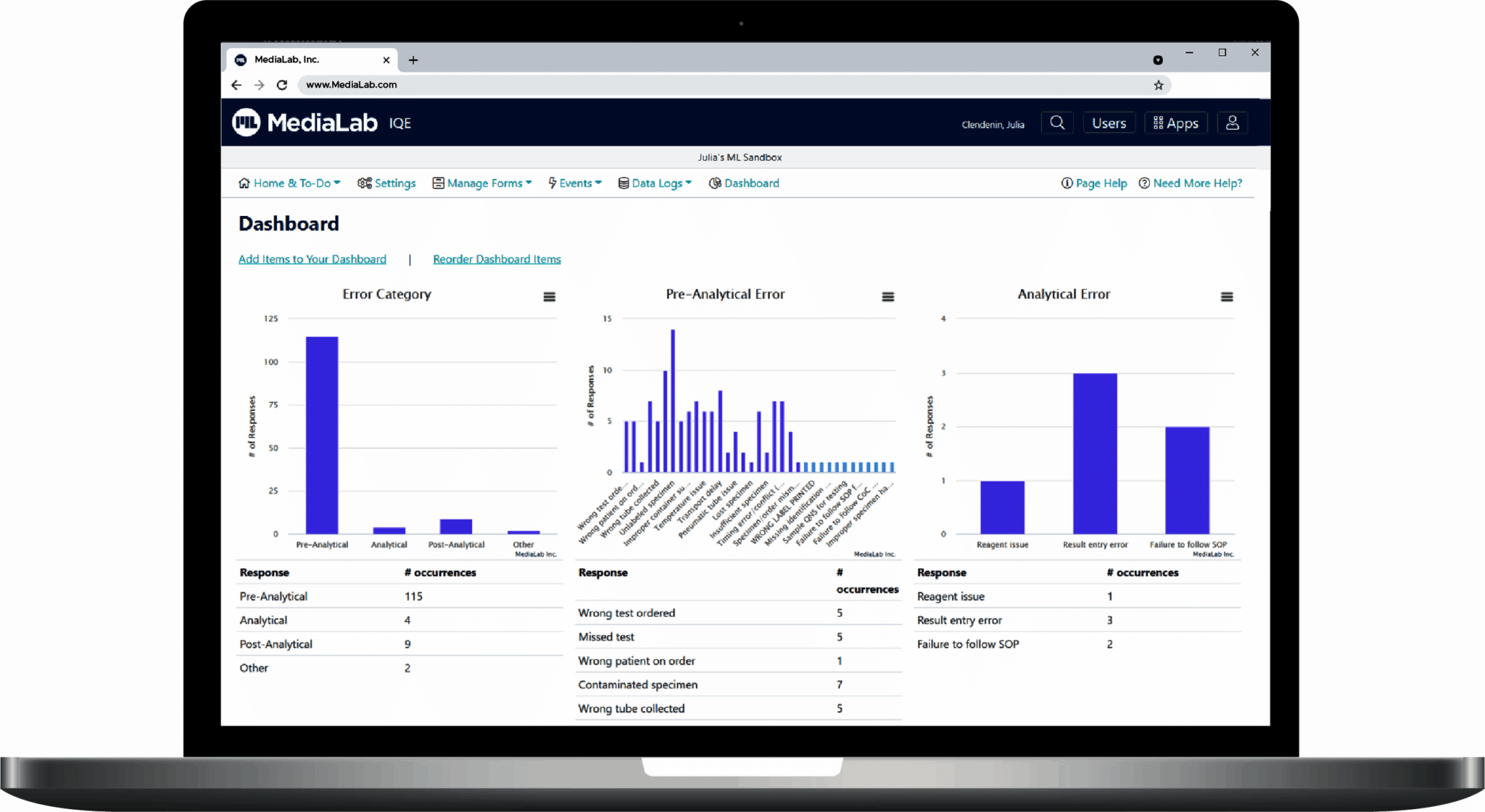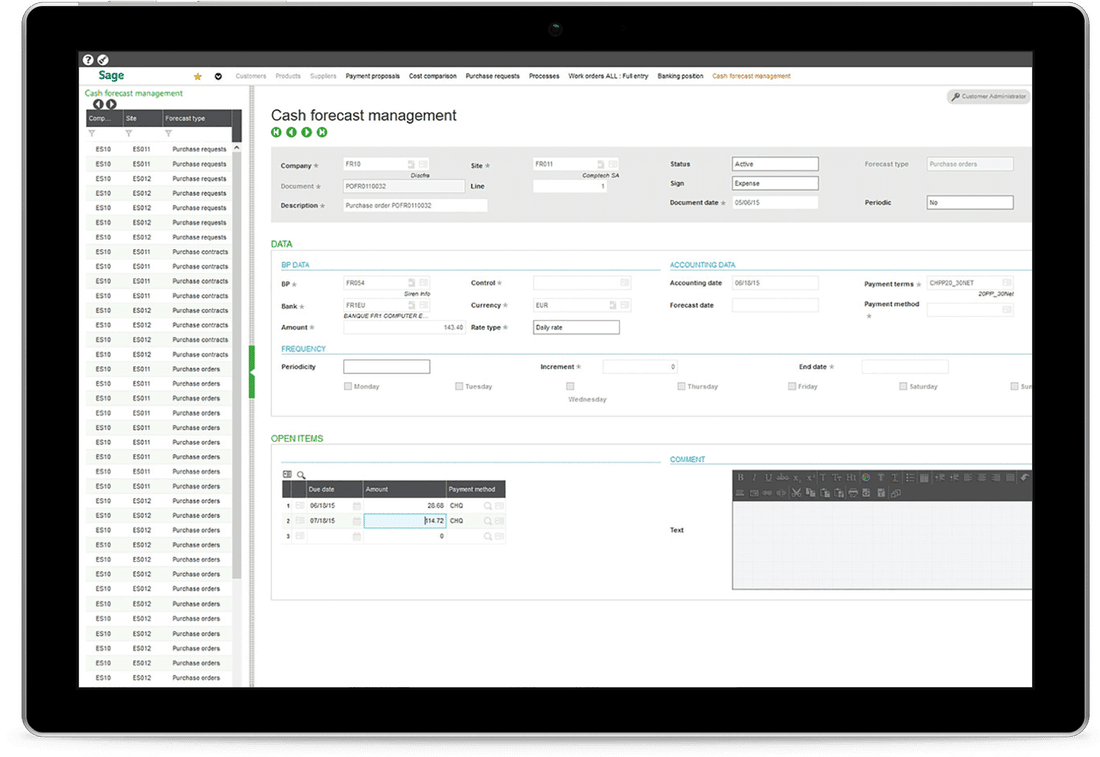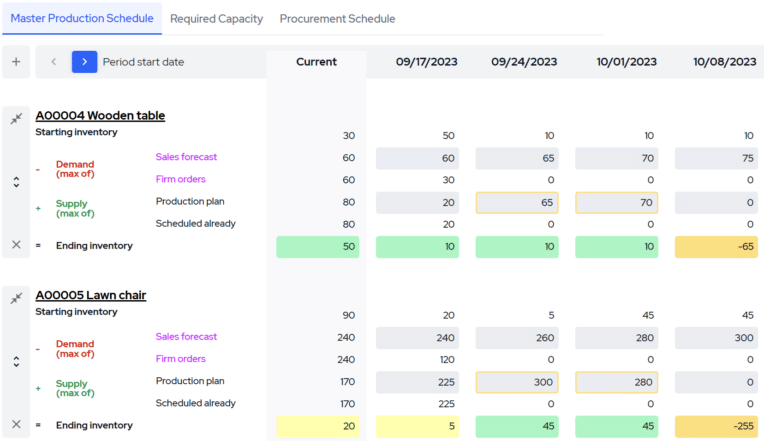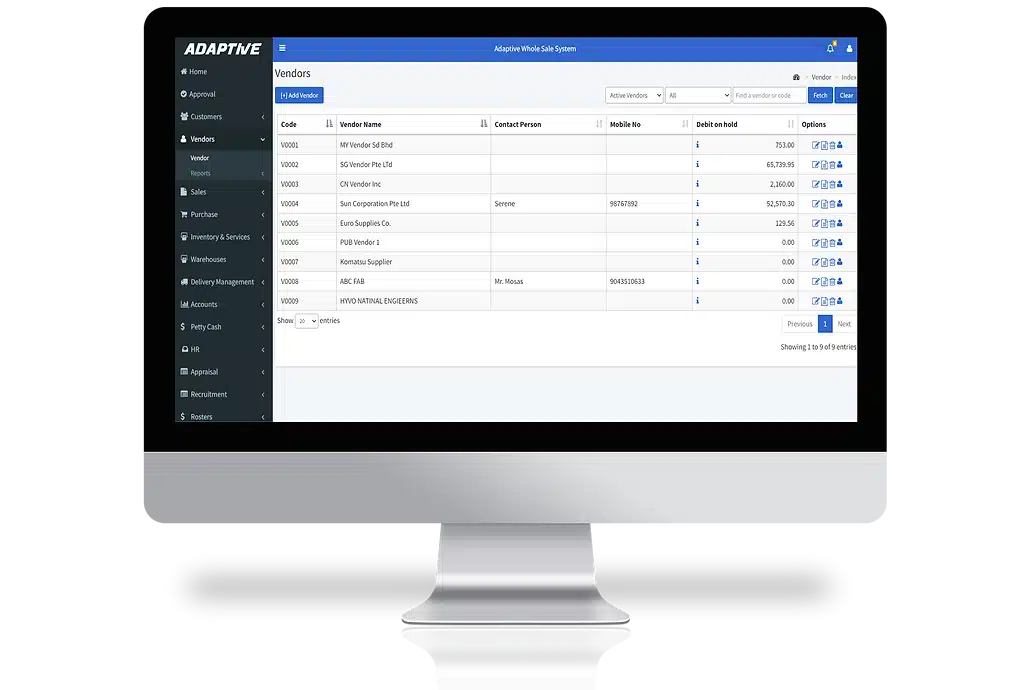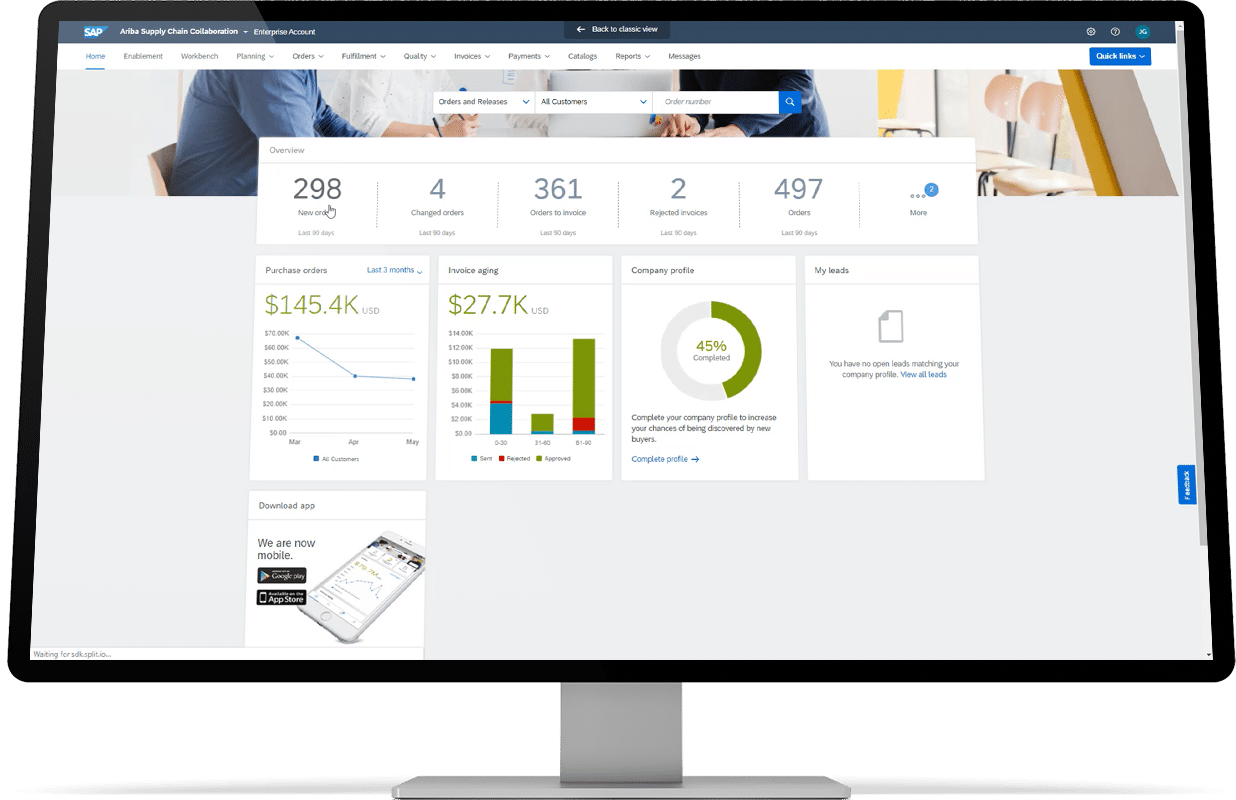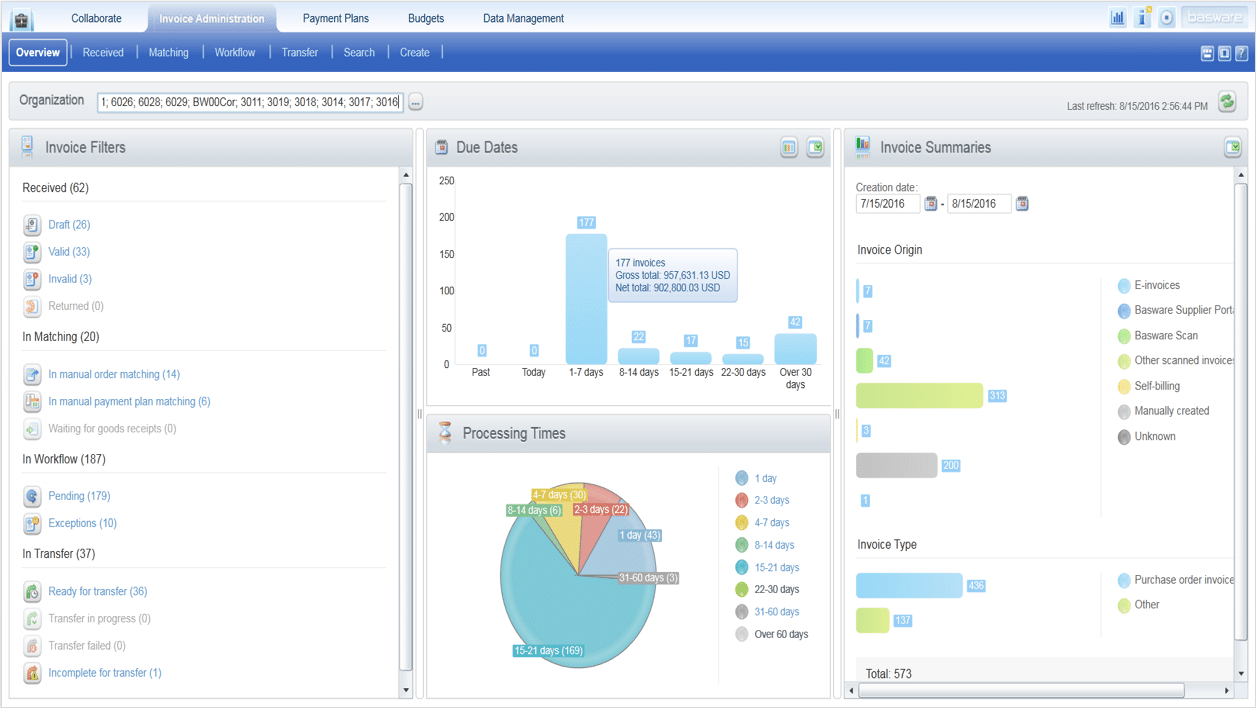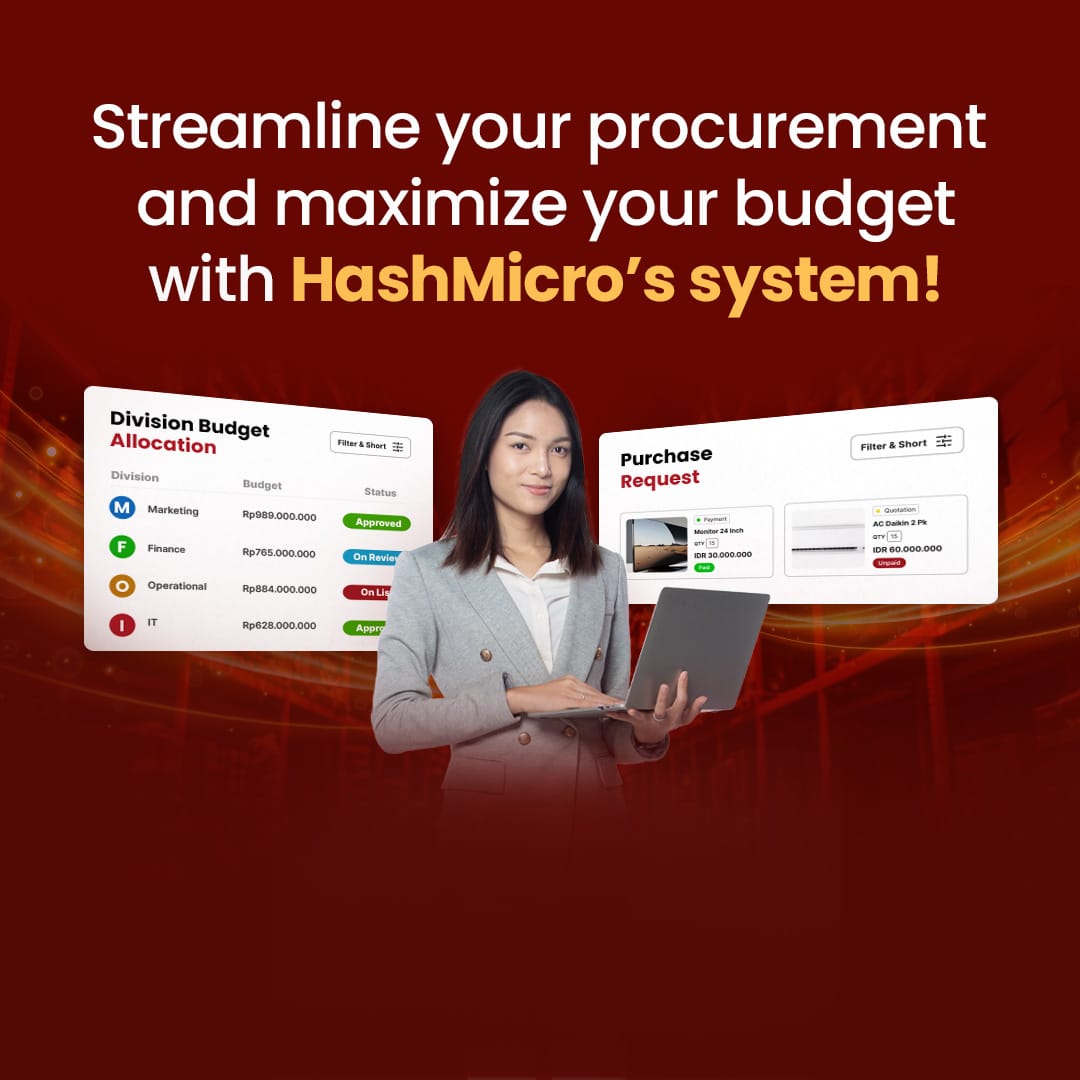Relying on outdated processes instead of modern procurement solutions and procurement software isn’t just inefficient, it’s risky. Without the right tools, your business is more vulnerable to slow approvals, disorganized supplier data, and costly invoice errors. These issues can affect your bottom line.
Key Takeaways
|
Table of Content:
Table of Content

The Best Strategic Procurement Software in Singapore for 2025 – Highlight
- HashMicro Procurement Software: A fully customizable e-procurement system with real-time updates, seamless integration and features like purchase order management and automated notifications.
- Coupa Procurement Software: A cloud-based platform that integrates seamlessly with other systems and procurement automation.
- Precoro Procurement Management System: A cloud-based solution that streamlines procurement with features like supplier portals, spend analytics, and customizable approval workflows for small to medium businesses.
- Oracle Procurement Management System: A comprehensive software that automates the procure-to-pay cycle, enhances supplier management, and provides detailed spend analytics for larger enterprises.
- Netsuite Procurement Software: A powerful procurement solution that offers real-time data on spending and vendor performance, with features like sourcing management and purchase order tracking for mid-sized and larger companies.
Procurement management software is a digital solution that automates and optimizes purchasing processes, helping businesses efficiently manage supplier selection, purchase orders, and invoice tracking. By integrating procurement systems with ERP software, businesses can streamline operations, improve budget control, and enhance supplier relationships while ensuring seamless transactions across departments.
Modern procurement software, including e-procurement software, reduces manual errors, enhances transparency, accelerates the procurement cycle, ensures compliance with company policies and regulations, and optimizes operational costs.

Hashy AI Fact

Need to Know
Manual purchasing drains time and clarity. Hashy AI Procurement automates approvals, tracks supplier performance, and syncs data in real time—so you can cut delays, reduce costs, and buy smarter.
Request a free demo today!
What Should You Look for in Procurement Management Software?
Below are essential factors to consider when selecting procurement management software:
1. Automation and workflow optimization
Look for software that automates procurement workflows, from purchase requests to approvals and order processing. Automated processes reduce manual errors, enhance efficiency, and speed up procurement cycles.
2. Supplier and vendor management
Effective procurement software should include a vendor management system to track supplier performance, maintain contracts, and streamline communication. This ensures better supplier relationships and cost control.
3. Real-time spend analysis and reporting
Robust reporting tools provide real-time insights into procurement activities, helping businesses analyze spending patterns and identify cost-saving opportunities. Customizable dashboards and analytics enhance decision-making.
4. Integration with other business systems
Seamless integration with ERP, accounting, and inventory management systems ensures a smooth procurement process. This helps maintain accurate financial records and improves overall operational efficiency. The best strategic procurement software should have a seamless environment for all its systems.
5. Key features of best procurement software
When choosing procurement software, prioritize industry-specific features, user-friendly cloud-based interfaces for real-time insights, and seamless integration with the best ERP software and other tools to enhance functionality, including Purchase Order OCR for efficient order processing. Ensure strong data security by selecting ISO-certified vendors and opt for mobile-compatible solutions for flexible, on-the-go procurement management.
16 Best Strategic Procurement Software
1. HashMicro Procurement Software
As one of the Best ERP Software providers, HashMicro provides e-procurement systems for businesses of all types. It gives you full traceability of goods going to your warehouse by allowing you to track them by sending notifications. HashMicro’s procurement software offers customizable delivery and payment adjustments based on received quantities, giving businesses precise control.
To ensure that your procurement process is aligned with your specific business needs, HashMicro offers a fully customizable solution that integrates seamlessly with your existing systems. With support from the CTC Grant covering up to 70% of the implementation cost, you can explore the software’s full potential through a free demo before making your decision.
Features:
- Purchase order, RFQ, and PR management for multiple suppliers
- PR approvals across departments
- Blanket order management
- Landed cost calculation
- Vendor Portal
- Vendor/supplier rating
Seamlessly integrate with inventory, accounting, and CRM systems, streamlines operations across the board, making it one of the best procurement companies’ software options.
Moreover, managing costs becomes effortless with features like budgeting, departmental cost centers, and automated notifications for unpaid invoices, ensuring efficient procurement management. For detailed pricing scheme calculations, which include an EDG (Enterprise Development Grant) of up to 70%, click the image below.
Why We Choose HashMicro Procurement Management Software: We chose HashMicro because it offers a fully customizable platform with an intuitive interface that delivers real-time data. Its transparent pricing, unlimited user support, and responsive customer service make it an excellent choice as the best strategic procurement software.
2. Coupa
Coupa procurement is a comprehensive cloud-based Business Spend Management (BSM) platform designed to streamline procurement processes across various business units, including supply chain, finance, and IT.
However, users have pointed out some challenges with Coupa. While the platform is generally easy to use with an intuitive user interface, some have found the integration process sometimes requires additional assistance. There are also observations about the user support being slow sometimes, which could hinder problem resolution.
Features:
- End-to-end management of the source-to-pay process
- Advanced collaboration tools with suppliers
- Risk management capabilities
- Integrated travel and expense management
Why We Choose Coupa Procurement Software: Coupa stands out due to its seamless integration with other systems, intuitive interface, and a low learning curve that accelerates team adoption.
3. Precoro Procurement Management System
Precoro is a comprehensive cloud-based procurement software designed to enhance the efficiency and transparency of small businesses’ procurement processes. It is particularly noted for its ability to streamline operations through automation.
However, some users have noted that the inventory management features can be somewhat basic, which might not meet the needs of companies looking for more advanced functionalities.
Features:
- Supplier Portal
- Spend Analytics and Reporting
- Purchase Order and Requisition Management
- Customizable Approval Workflows
Why We Choose Precoro Procurement Management System: We select Precoro for its cloud-based applications that adapt easily to business needs, making it highly versatile.
4. Oracle
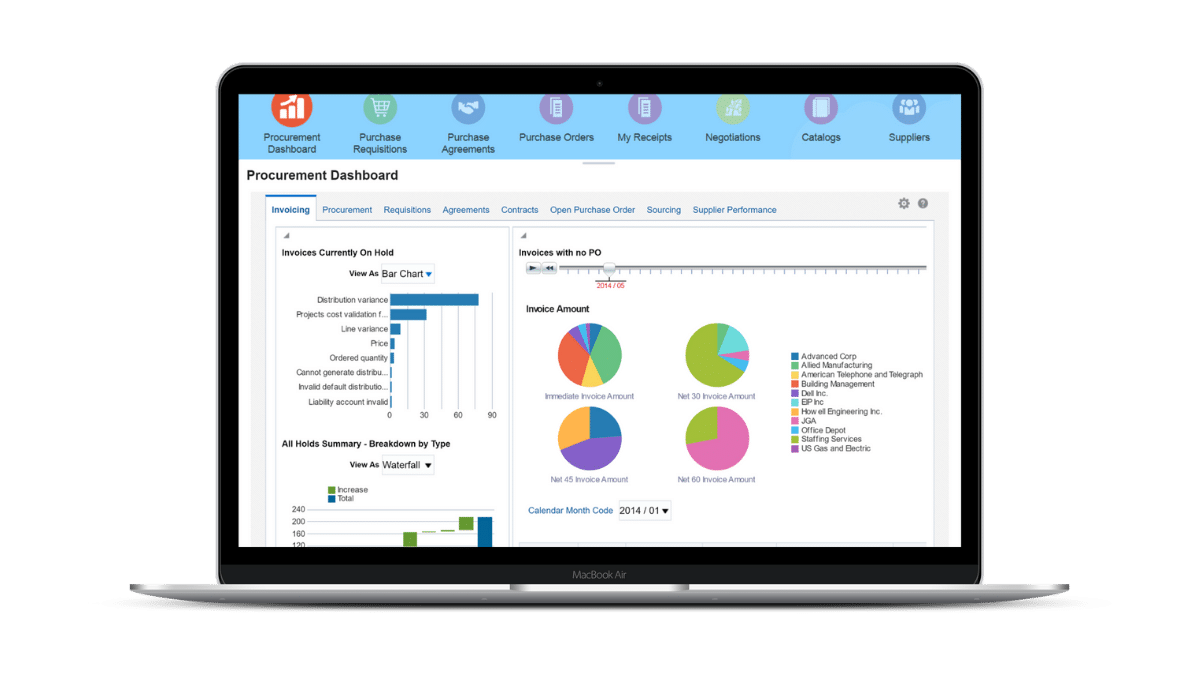
Next on our list, Oracle Fusion Cloud Procurement, one of the leading procurement software providers, is a good choice for automating procure-to-pay, strategic sourcing, and supplier management processes.
However, some users have noted that Oracle Fusion Cloud Procurement’s implementation process can be complex and time-consuming. Additionally, the software may be cost-prohibitive for smaller businesses, limiting its accessibility to larger enterprises with substantial budgets.
Features:
- Automate Procure-to-Pay Cycle
- Improve Supply Base Management
- Adapt to Any Purchasing Practice
- Enhanced Spend Analytics
Why We Choose Oracle Procurement Management System: Oracle attracts us with its automation capabilities, straightforward interface, and ease of learning, optimizing our business operations efficiently.
5. Netsuite Procurement Software
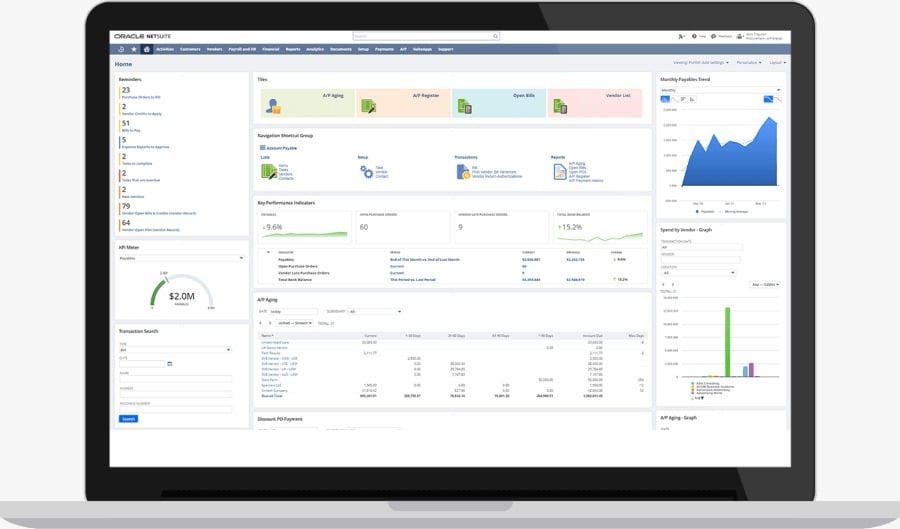
Using NetSuite’s purchasing and procurement software, a top procurement tool and leading procurement platform software, you can optimize your procurement process by system approval routings for cost certainty.
NetSuite’s procurement solution assists businesses in purchasing goods and services at the lowest cost and in the shortest time while improving visibility by providing real-time information on company spending and vendor performance.
Some users have reported that the software can have a steep learning curve for less tech-savvy teams, especially during initial implementation. Additionally, its premium pricing structure may be less suitable for small businesses with limited budgets, making it more appealing to mid-sized and larger enterprises.
Features:
- Sourcing Management
- Purchase Order Management
- Vendor Management
- Spend Analytics and Reporting
Why We Choose Netsuite Procurement Software: We favor NetSuite’s ability to provide real-time data and a straightforward learning process, which aids in timely decision-making.
6. Procurify Procurement Management System
Procurify is a cloud-based procurement management system designed to streamline procurement processes and improve visibility and control over spending. Mid-sized companies particularly favor it for its ease of use and the comprehensive features it offers.
While Procurify is praised for its user-friendly interface and efficient mobile applications that support Android and iOS, some users have noted that it may not be suitable for large companies requiring more complex inventory management systems.
Features:
- Real-time Budget Tracking
- Custom User Controls
- Electronic Purchase Order Approval
- Mobile Application Support
Why We Choose Procurify Procurement System: We prefer Procurify because of its mobile capability and responsive customer service, which enhances user access and support.
7. GEP Worldwide Smart
GEP SMART is a comprehensive procurement platform highly regarded for its deep functionality and ease of use, particularly valued for consolidating and optimizing procurement and contract management functions across enterprises.
However, some users find the user interface less intuitive and somewhat difficult to navigate, which can impact user adoption and productivity.
Features:
- Comprehensive Procurement Management
- Advanced Analytics and Reporting
- Artificial Intelligence and Machine Learning
- Flexible Workflow Configuration
Why We Choose GEP Worldwide Smart: We opt for GEP Worldwide Smart because of its advanced analytical and reporting capabilities, enhanced by artificial intelligence, which makes it a powerful tool for procurement.
8. Syspro
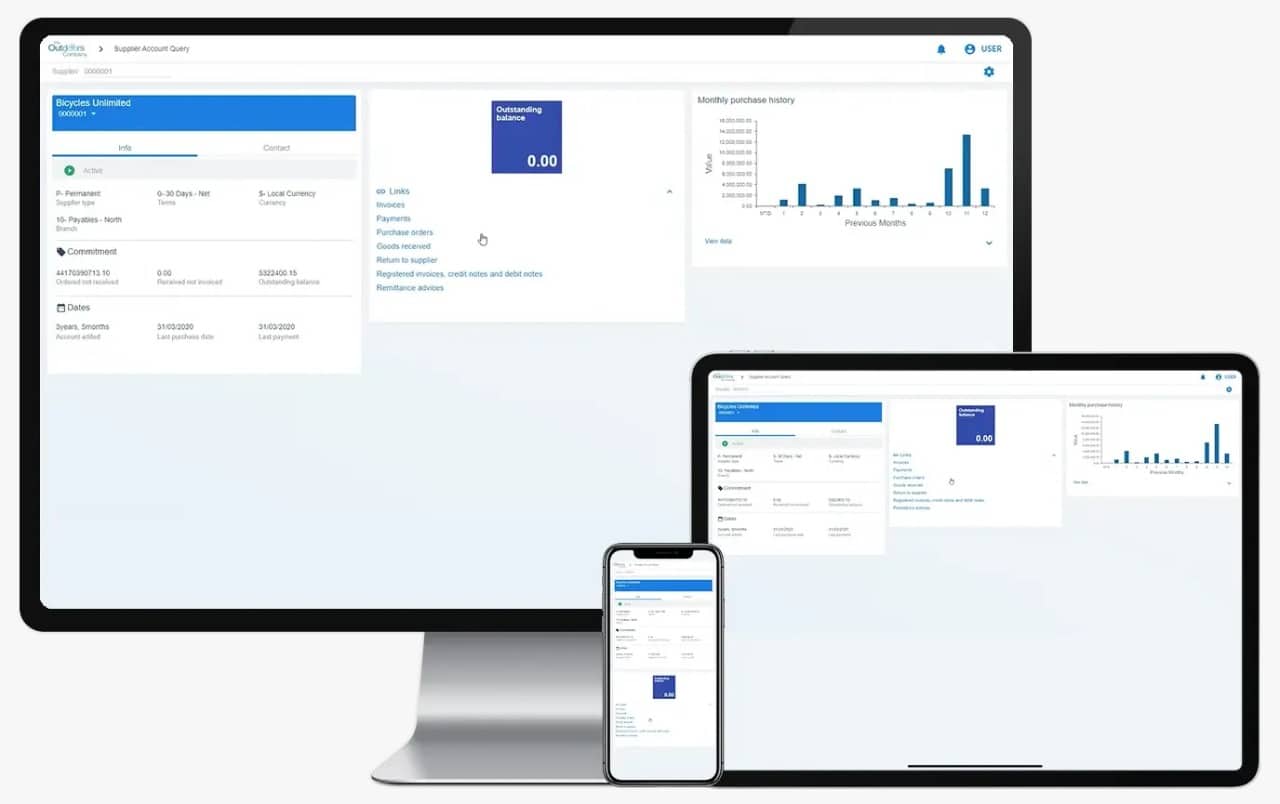
Procurement management software is essential in supply chain management, and Syspro is recognized as one of the best e-procurement software solutions. It allows you to have a real-time view and control of your entire supply chain’s resources.
However, some users have noted that Syspro’s interface may feel outdated compared to newer competitors, and its customization options can be complex to implement without technical expertise. Additionally, smaller businesses might find the software’s advanced features to be more than they need, making it better suited for medium to large-scale operations.
Syspro Procurement Management Software Features:
- Request for Quotation (RFQ)
- Purchase Order
- Supplier Management
- Reporting and Analytics
Why We Choose Syspro Procurement Software: We choose Syspro because it simplifies and automates the procurement process, significantly reducing costs and streamlining operations.
9. Tigernix
As a procurement management system provider, Tigernix enables asset management as well as communication with suppliers and retailers. With a user-friendly interface, this software has a wide range of features to fit your needs. For example, purchasing management, invoice management, RFQ support, and payment management features.
Additionally, while the software offers broad scalability, smaller businesses might find certain advanced features underutilized or unnecessary, making it more suitable for mid-sized to large organizations. Some users have mentioned that Tigernix’s customer support response times can occasionally be slower than expected.
Features:
- Supply Chain Management
- E-Procurement Software (ePP)
- Purchasing System
- Supplier Management
Why We Choose Tigernix Procurement Management: Tigernix appeals to us due to its broad scalability and user-friendly interface, meeting a variety of business needs.
10. Epicor
Epicor, a leading procurement software provider, offers comprehensive solutions to streamline and optimize procurement processes for small businesses. It allows businesses to manage supplier relationships effectively.
With a strong reputation in the industry, Epicor provides a range of robust features and functionalities to enable organizations to manage their procurement activities efficiently, positioning it as a leading procurement software in the market.
The limitation is the software’s interface can feel outdated compared to newer competitors, which may affect the overall user experience. Also, the customization options may require technical expertise, potentially increasing implementation time and costs for businesses without an in-house IT team.
Features:
- Supplier Portal
- Strategic Sourcing
- Supplier Management
- Spend Analytics and Reporting
Why We Choose Epicor Procurement Management System: Epicor enhances businesses by streamlining all operational aspects and improving our efficiency in managing supplier relationships.
11. Media Labs Procurement Management System
Media Labs’ procurement system, recognized as one of the best e-procurement software options, supports strategic sourcing activities, offering tools for supplier discovery, negotiation, and contract management.
But, the software has limitations such as its integration with third-party systems can be limited, which may require additional customization efforts. Smaller companies also might find the software’s advanced features more complex than necessary for their procurement needs, making it better suited for larger organizations seeking strategic insights.
Features:
- Automated Purchase Orders
- Supplier Management
- Inventory Management
- Spend Analysis
Why We Choose Media Labs Procurement Management System: We select Media Labs as it reduces the risk of errors and offers profound analytical capabilities, increasing our strategic insights.
12. Sage ERP
Sage ERP understands the significance of compliance and risk management in procurement processes. This enterprise procurement software incorporates robust controls and workflows to ensure adherence to regulatory requirements and internal policies.
The drawback is some users have pointed out that the software’s implementation can be time-intensive, especially for businesses without dedicated IT resources. Additionally, while its mobile procurement functionality is beneficial, the mobile interface could benefit from enhancements to improve user experience and accessibility.
Features:
- Purchasing System Workflow Control
- Mobile Procurement
- Purchase Order Management
Why We Choose Sage ERP Procurement Management System: Sage supports business operations with its mobile functionality and strong monitoring and control features, facilitating management flexibility.
13. MPS Procurement Management Software
One of the strengths of the MPS procurement system is its real-time visibility into the entire procurement workflow. Advanced analytics and reporting empower users with valuable insights into spending patterns, supplier performance, and market trends, enabling data-driven decision-making and continuous improvement in procurement operations.
MPS may require significant customization to fit unique business needs, which could prolong the implementation process. Its advanced features, like predictive analytics, may present a learning curve for teams unfamiliar with data-driven tools, making initial adoption slightly challenging for some organizations.
Features:
- Predictive Analytics
- Compliance Automation
- Purchase Order Management
Why We Choose MPS Procurement Management Software: MPS is our choice due to its predictive analytics and market trend analysis features, which give strategic foresight.
14. Adaptive BizApp Procurement Management System
Adaptive BizApp stands out as a trusted procurement tracking software provider due to its comprehensive functionality, real-time visibility, strategic sourcing capabilities, compliance support, and focus on supplier management.
The system is also accessible through web or mobile applications. By leveraging Adaptive BizApp’s procurement management software, businesses can improve decision-making in their procurement operations.
However, some users have noted that MPS may require significant customization to fit unique business needs, which could prolong the implementation process. Additionally, its advanced features, like predictive analytics, may present a learning curve for teams unfamiliar with data-driven tools.
Features:
- Request for Quotation (RFQ)
- Purchase Order (PO)
- Purchasing System
- Supplier Management
Why We Choose Adaptive BizApp Procurement Management System: Adaptive BizApp provides flexibility with web and mobile access and keeps companies updated with real-time data.
15. SAP Ariba
SAP Ariba is a comprehensive cloud-based procurement software solution known for its ability to help businesses manage their spending and procurement processes. It offers a wide range of functionalities from supplier management and strategic sourcing to procurement and invoice management, all aimed at streamlining the entire source-to-pay cycle.
However, despite its robust capabilities, SAP Ariba’s procurement management system is often critiqued for its user interface. Many users find the platform not very user-friendly, with a dashboard that can be difficult to navigate and understand. This can lead to a steeper learning curve and may require additional training for users to become proficient.
Features:
- Supplier Management
- Strategic Sourcing
- Invoice Management
- Spend Visibility
Why We Choose SAP Ariba: We opt for SAP Ariba because of its cloud-based system and extensive scalability, supporting growth effectively.
16. Basware
Basware Procure-to-Pay is an integrated solution designed to streamline the entire procurement process, from purchase order creation to invoice processing. It is particularly effective for large companies that manage a high volume of invoices.
While Basware is highly praised for its functionality and the clarity of its user interface, some users have noted challenges such as occasional system slowdowns and a complex interface for navigating past invoices. Additionally, once documents are cancelled in the system, they cannot be restored, which can be a limitation for some users.
Features:
- e-Invoicing Solution
- Touchless Accounts Payable Automation
- E-Procurement Integration
- Invoice Matching
Why We Choose Basware: Basware boosts our productivity through its efficiency and accuracy enhancements, streamlining our procurement processes.
Conclusion
Businesses face risks from both internal and external factors, especially when managing purchases. Tracking orders manually across platforms can quickly become overwhelming and inefficient. That’s why using an integrated procurement system and ERP software is not just helpful but essential for smoother operations using the best strategic procurement software.
A Procurement management system can help you run business processes better, as it will help you increase efficiency. This system enables real-time access to critical information by automating complicated processes. As a result, the procurement process will be quicker and easier, and you can make decisions more accurately.
HashMicro’s procurement management software as the best strategic procurement software can help you achieve just that. With integrated and customizable features, HashMicro’s software will boost your company’s growth. However, if you still want to learn more, click the image below or schedule a free demo here.
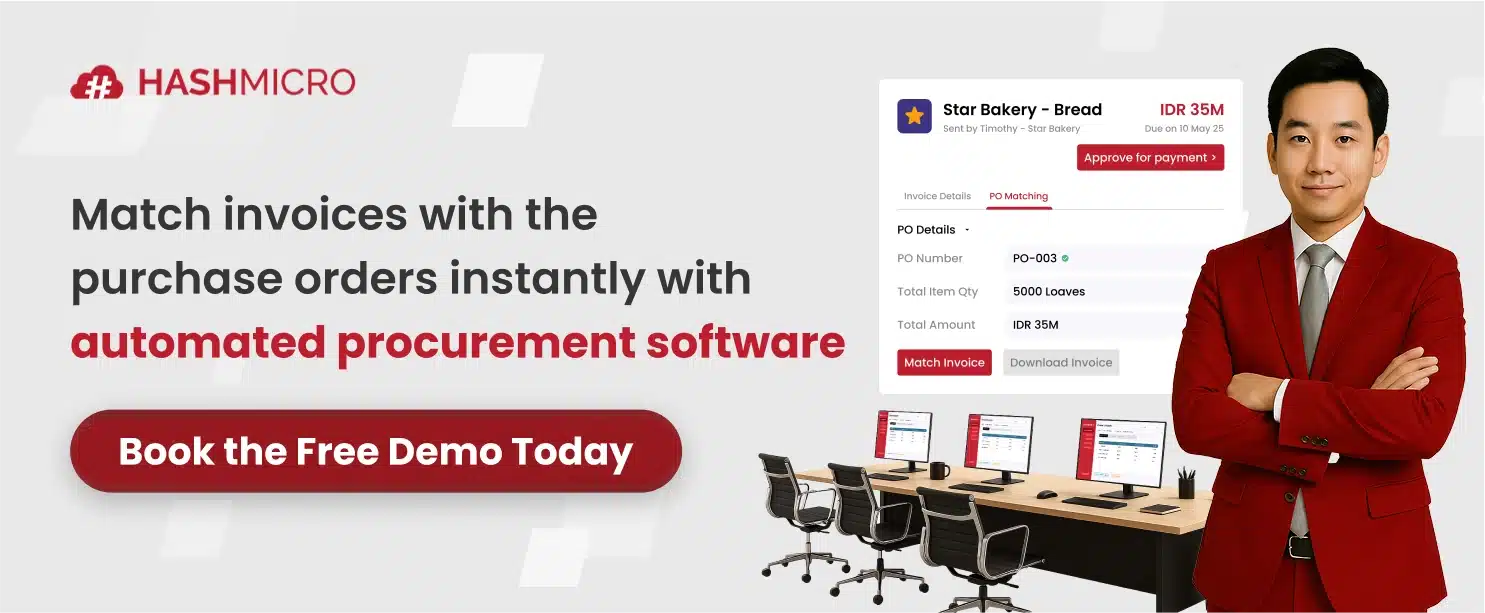
FAQ About Procurement Software
-
-
Is ERP a procurement software?
ERP (Enterprise Resource Planning) systems often include procurement modules but are not solely procurement software. ERP systems integrate various business processes into one comprehensive system, including finance, HR, and procurement.
-
Why should companies use procurement software?
Companies should use procurement software to streamline purchasing processes, reduce manual errors, improve supplier management, enhance transparency, ensure compliance, and achieve cost savings. It increases efficiency and provides better control over procurement activities.
-
What are the 3 main types of procurement?
The three main types of procurement are Direct Procurement, Indirect Procurement, and Services Procurement.
Direct Procurement involves acquiring raw materials, components, or goods that are directly used in the production of an organization’s core products or services. For example, in a manufacturing company, direct procurement would include purchasing essential materials like steel, plastic, or electronic components. The primary goal of direct procurement is to secure these materials at the best possible price while maintaining high-quality standards and ensuring a reliable supply chain. This type of procurement focuses heavily on cost efficiency, supplier reliability, quality control, and inventory management.
Indirect Procurement, on the other hand, refers to the acquisition of goods and services that are not directly tied to the production process but are necessary for the organization’s daily operations. Examples of indirect procurement include purchasing office supplies, IT equipment, furniture, and maintenance or repair supplies. The purpose of indirect procurement is to support internal functions and maintain the organization’s infrastructure, which helps ensure business continuity. It focuses on cost control, efficient management of resources, and optimizing supplier contracts.
Lastly, Services Procurement involves the procurement of services rather than physical goods. This can range from professional services like consulting and legal services to outsourced labor, facilities management, or marketing services. Examples include hiring contractors, consulting firms, software development teams, or marketing agencies. The goal of services procurement is to acquire specialized expertise or external support that the organization either does not have internally or chooses not to manage itself. The main focus is on ensuring the quality of the service provided, compliance with service level agreements, and managing vendor performance.
-
Which software is best for procurement management?
The best software for procurement management largely depends on the specific needs of a company. However, some of the top software solutions in the market are:
HashMicro ERP System – A comprehensive procurement management solution that streamlines purchasing, vendor management, and inventory control.
Coupa – A cloud-based solution offering procurement and spend management for large enterprises.
Procurify – Ideal for small to mid-sized businesses, it simplifies purchase requests, order approvals, and supplier management.
GEP – Known for its procurement intelligence and supply chain management tools, suitable for enterprises looking to optimize procurement processes. -
What is software procurement management?
Software procurement management refers to the process of acquiring, deploying, and managing software solutions within a company. It involves identifying the right software to meet the company’s needs, negotiating terms with vendors, and ensuring the software is properly integrated into existing systems. Effective procurement management can optimize spending, improve operational efficiency, and align software tools with business objectives.
-








